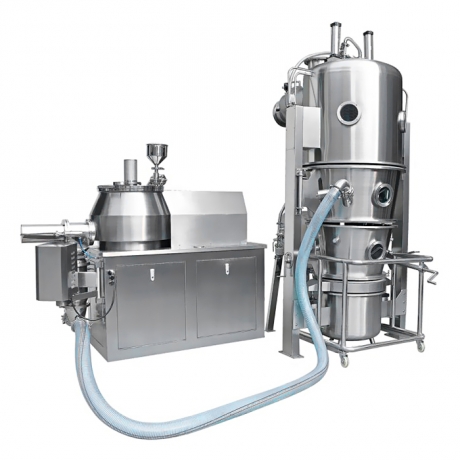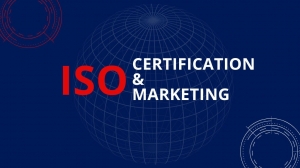Good Manufacturing Practice (GMP) compliance is a fundamental requirement in the pharmaceutical industry. Ensuring that pharmaceutical machinery adheres to GMP guidelines is crucial for maintaining product quality, safety, and regulatory approval. This article explores the importance of GMP compliance in pharmaceutical machinery, key requirements, regulatory standards, and best practices for maintaining compliance.
Understanding GMP Compliance in Pharmaceutical Machinery
GMP is a set of regulations enforced by regulatory bodies such as the FDA (Food and Drug Administration), WHO (World Health Organization), and EMA (European Medicines Agency). These guidelines ensure that pharmaceutical products are consistently produced and controlled according to quality standards. Machinery used in pharmaceutical manufacturing must be GMP-compliant to prevent contamination, ensure accuracy, and maintain process integrity.
Key Requirements for GMP-Compliant Pharmaceutical Machinery
To achieve GMP compliance, pharmaceutical machinery must meet specific requirements, including:
- Design and Construction
- Equipment should be made of high-quality, non-reactive materials such as stainless steel (SS 304 or SS 316) to prevent contamination.
- Smooth surfaces and crevice-free designs help in easy cleaning and avoid microbial growth.
- Machinery should be designed for minimal operator intervention to reduce human error.
- Cleaning and Maintenance
- Pharmaceutical machinery should be easy to clean and sterilize to prevent cross-contamination.
- Clean-In-Place (CIP) and Sterilize-In-Place (SIP) systems should be incorporated for effective cleaning.
- Regular maintenance schedules should be followed to ensure optimal performance and prevent breakdowns.
- Validation and Qualification
- Equipment must undergo Installation Qualification (IQ), Operational Qualification (OQ), and Performance Qualification (PQ) before being used in production.
- Process validation ensures that equipment operates within defined parameters and produces consistent results.
- Documentation of validation processes is essential for regulatory compliance.
- Automation and Digital Integration
- Advanced pharmaceutical machinery should include automation to minimize human intervention and enhance precision.
- Integration with SCADA (Supervisory Control and Data Acquisition) and PLC (Programmable Logic Controller) systems allows for better control and monitoring.
- Data integrity should be ensured through electronic records and compliance with 21 CFR Part 11 regulations.
- Safety and Compliance with Regulatory Standards
- Machinery must meet the safety standards set by regulatory authorities such as US FDA, WHO, cGMP, and EU GMP.
- Proper ventilation, dust extraction, and explosion-proof features should be incorporated where necessary.
- Operators must be trained on safety protocols and machine operation to prevent accidents.
Regulatory Standards for GMP Compliance
GMP compliance is regulated by various global authorities, including:
- US FDA (21 CFR Part 210 and 211): Governs manufacturing practices for drugs and pharmaceuticals.
- EU GMP Guidelines: Ensures compliance for pharmaceutical manufacturing in Europe.
- WHO GMP: Provides international standards for pharmaceutical production.
- PIC/S GMP (Pharmaceutical Inspection Co-operation Scheme): Harmonizes GMP standards globally.
- ICH Q7 Guidelines: Focuses on GMP compliance for active pharmaceutical ingredients (APIs).
Best Practices for Ensuring GMP Compliance in Pharmaceutical Machinery
To maintain GMP compliance, pharmaceutical companies should follow these best practices:
- Invest in High-Quality Equipment
Choose machinery that is designed and manufactured according to GMP guidelines. Ensure that suppliers provide validation documents and certifications.
- Implement Robust Documentation Systems
Maintain detailed records of machine operation, maintenance, validation, and training. Proper documentation helps in regulatory audits and quality assurance.
- Regularly Train Employees
Operators and maintenance personnel should be trained in GMP regulations, equipment handling, and hygiene practices to ensure compliance.
- Conduct Periodic Audits and Inspections
Routine internal audits help identify compliance gaps and address issues before regulatory inspections. Third-party audits can also ensure an unbiased assessment of GMP adherence.
- Upgrade Machinery When Necessary
Obsolete equipment can compromise compliance and product quality. Regularly upgrade machinery to meet evolving GMP standards and technological advancements.
The Role of GMP Compliance in the Pharmaceutical Industry
Ensuring GMP compliance in pharmaceutical machinery provides several benefits, including:
- Enhanced Product Quality: GMP-compliant machinery ensures that pharmaceutical products meet high-quality standards.
- Regulatory Approval: Compliance with GMP guidelines is mandatory for market authorization.
- Patient Safety: High-quality production minimizes risks associated with contamination or incorrect dosages.
- Operational Efficiency: Automation and process control reduce waste, increase production efficiency, and minimize downtime.
GMP compliance in pharmaceutical machinery is vital for ensuring product safety, regulatory approval, and operational efficiency. By adhering to GMP guidelines, manufacturers can maintain high-quality standards and build trust with regulatory authorities and consumers. Investing in compliant machinery, robust documentation, and continuous training ensures long-term success in the pharmaceutical industry.
For pharmaceutical companies seeking GMP-compliant machinery, partnering with reliable manufacturers is essential to meeting industry standards and achieving excellence in production.






